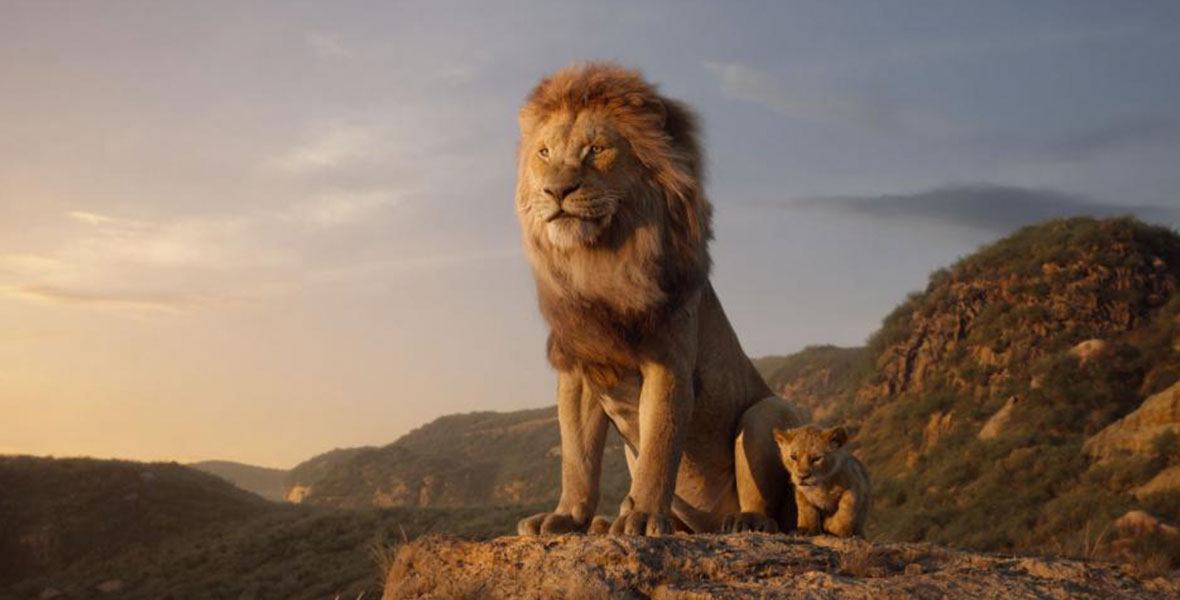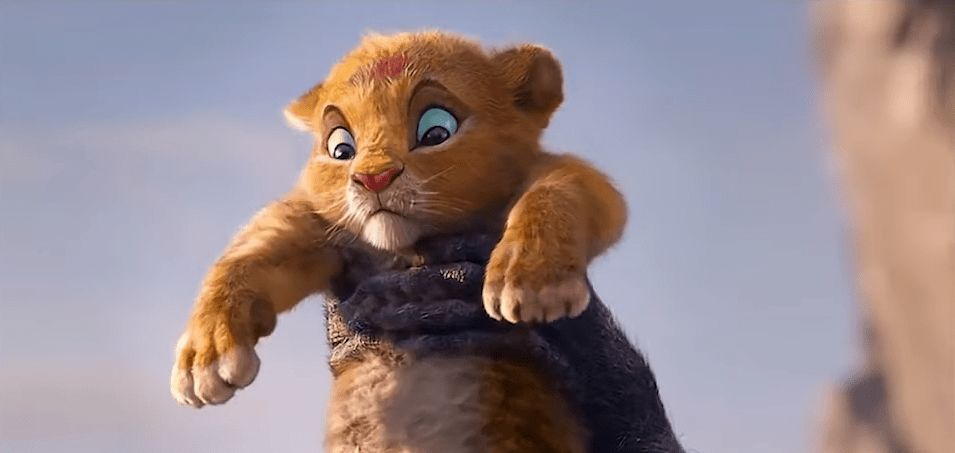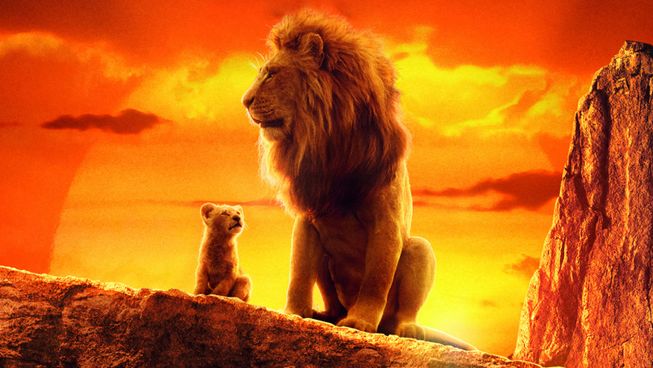Contents
- 1 Comparison to the original Lion King
- 2 Cast and characters in The Lion King (2019)
- 3 The visual effects in The Lion King (2019)
- 4 Musical score and soundtrack in The Lion King (2019)
- 5 Critical reception and box office success
- 6 Impact on the Disney franchise and future adaptations
- 7 Controversies surrounding The Lion King (2019)
- 8 Behind-the-scenes production insights
- 9 Final thoughts
- 10 Author
Disney rebooted the 1994 classic “The Lion King” as a live action feature in 2019. Not only that, but the live-action take on this classic tale boasts luscious visuals, and stars an enviable collection of talent, so it’ll make for a nostalgic watch, but also infuses a new spin into proceedings.
Directed by Jon Favreau, “The Lion King” (2019)attaches the enchanting narrative of Simba as he traverses the lines in order to claim his destiny and become ruler of the Pride Lands in the way that is familiar and distinctive.
Tracking (Directed by Tarek Bouraque)The narration of the trailer parades a variety of wildlife, all distinct in appearance, telling the audience that the world of this film is beautiful, with sterlingpandamonium, grand creatures and wide open space. And here in this new format, as the iconic characters such as Simba, Mufasa, and Scar are recreated with jaw-droopingly realism, we as an audience are hard-pressed not to get wrapped up in their fights and successes.
Comparison to the original Lion King

The new “The Lion King” of 2019 both honors and updates the Disney animated classic. The basic plot follows that of the film, where Simba goes from a young cub to the proper ruler of the Pride Lands. Only, we see a level of realism and grandeur to the characters and their world that the live action adaptation provides making it a different experience.
One of the more obvious differences between the two versions is in the way the look visually. Though the animated feature leaned towards a more hand-drawn, cartoonish quality, this new iteration of The Lion King uses technology that is most definitely about to ruin all cinema. The animal characters all appear extremely realistic, as do the beautiful African landscapes. Artistically, it adds a new level of detail to the sprawling Savannah that had been conjured into existence by the Disney artists, and gives the film a fresh (and literal) perspective that transports audiences into another world.
The voice cast is another notable change. The 2019 one has a stellar cast, with the likes of Donald Glover filling in as Simba, Beyoncé as Nala, and Chiwetel Ejiofor nearly unrecognizable as Scar. These two deliver in a way that shows layers and emotions of what regular people would internalize. There’s an undeniable chemistry between the cast that shines through authentically in the final product.
Cast and characters in The Lion King (2019)
The performances in “The Lion King” (2019) are nothing less than stellar, portraying these iconic characters to fucking perfection. Donald Glover will play the young lion prince Simba. Glover brings his diverse talents to the iconic role of Simba in Disney’s new live-action adaptation of the story of the young lion who becomes king in breathtaking fashion as he journeys from wide-eyed cub to his destined role as wise and courageous leader of the pride.
Beyoncé Knowles-Carter provides the voice for Nala, a childhood friend and love interest of Simba. Beyoncé (who brings a lot of her powerful singing and stage presence as Nala) playing off Simba seems impossible, the actors had to record the songs separately so they could hear themselves better over the orchestra, but it all works out in the end.
Chiwetel Ejiofor is absolutely menacing as Scar, the treacherous brother of Mufasa, who will stop at nothing to take over the throne. Ejiofor’s booming voice adds a threatening edge to [Scar], ensuring he is possibly one of the film’s most serious and mischievous Disney villains to date.
James Earl Jones retruns to play Mufasa, Fasa, Jürgen Mufasa, Simba’s generous and law-abiding father, and Seth Rogen and Billy Eichner are The Lion King’s much-welcome comedy pair Timon, and Pumba (relax! they spend majority kung fu fighting, sorry… others ways quite generally).
The visual effects in The Lion King (2019)
One of the most impressive aspects of “The Lion King” (2019) is its groundbreaking visual effects. The film utilizes cutting-edge technology to create photorealistic animals and landscapes, immersing the audience in a stunningly lifelike world.
The team behind the visual effects spent years studying real animals and their movements, ensuring that every detail was captured with meticulous accuracy. The result is a breathtaking display of realism, with the lions, hyenas, and other creatures looking like they could step right off the screen.
The attention to detail extends beyond the animal characters. The African landscapes are meticulously rendered, with every blade of grass and every rock painstakingly recreated. The cinematography captures the vastness and beauty of the savannah, making it feel like a character in its own right.
The visual effects in “The Lion King” (2019) not only enhance the storytelling but also create a sense of wonder and awe. Audiences are transported to a world where animals talk and interact with each other, and the line between reality and fantasy is blurred. It’s a testament to the power of technology and the artistry of the filmmakers.
Musical score and soundtrack in The Lion King (2019)

Music has always been an integral part of “The Lion King,” and the 2019 version is no exception. The film features a reimagined score by legendary composer Hans Zimmer, who infuses the music with new life while staying true to the original themes and melodies.
The iconic songs from the original film, such as “Circle of Life” and “Hakuna Matata,” are also present in the 2019 version, with a fresh take that showcases the vocal talents of the cast. Beyoncé, in particular, shines with her powerful rendition of “Can You Feel the Love Tonight,” adding her own unique flair to the beloved ballad.
The soundtrack of “The Lion King” (2019) strikes a delicate balance between honoring the original songs and introducing new compositions. The result is a musical experience that feels both familiar and exciting, with each song serving to enhance the emotional impact of the story.
The combination of Zimmer’s score and the reimagined songs creates a rich and immersive audio experience that complements the stunning visuals and powerful performances. It’s a testament to the enduring legacy of the music in “The Lion King” and its ability to touch the hearts of audiences across generations.
Critical reception and box office success
Upon its release, “The Lion King” (2019) received mixed reviews from critics. While the film was praised for its stunning visuals and powerful performances, some felt that it lacked the emotional depth and charm of the original. However, the film was a massive box office success, grossing over $1.6 billion worldwide.
Despite the mixed critical reception, audiences flocked to theaters to experience the magic of “The Lion King” once again. The nostalgia factor played a significant role in its success, with fans of the original eager to relive the story and introduce it to a new generation.
The film’s impressive box office performance solidified its place as one of Disney’s most successful live-action adaptations. It also demonstrated the enduring popularity of the “The Lion King” franchise, paving the way for future adaptations and spin-offs.
Impact on the Disney franchise and future adaptations
“The Lion King” (2019) not only revitalized the beloved animated classic but also had a significant impact on the Disney franchise as a whole. Its success paved the way for more live-action adaptations of Disney’s animated films, as the studio recognized the potential for nostalgia-driven storytelling.
The film’s stunning visuals and technological achievements also set a new standard for visual effects in the industry. It pushed the boundaries of what is possible in terms of creating realistic animals and environments, inspiring other filmmakers to explore similar techniques in their own projects.
“The Lion King” (2019) also sparked a renewed interest in the original film, with many fans revisiting the animated classic and introducing it to a new generation. It served as a reminder of the timeless appeal of the story and characters, solidifying their place in pop culture.
The success of “The Lion King” (2019) also opened the door for more diverse storytelling in future adaptations. By featuring a predominantly African-American cast, the film celebrated representation and provided an opportunity for underrepresented voices to shine on the big screen.
Controversies surrounding The Lion King (2019)
Despite its success, “The Lion King” (2019) was not without its fair share of controversies. One of the main points of contention was the film’s classification as a live-action adaptation, despite the fact that it predominantly featured photorealistic CGI animals.
Some argued that referring to the film as “live-action” was misleading, as it was essentially an animated film with realistic visuals. Others felt that the decision to use CGI animals detracted from the emotional impact of the story, as it was difficult to convey the same level of expression and nuance as in the original animated film.
Another controversy surrounding the film was the depiction of certain characters and elements. Some viewers felt that the portrayal of the hyenas perpetuated negative stereotypes, while others criticized the lack of diversity in the voice cast, considering the story’s African setting.
These controversies sparked debates and discussions among fans and critics alike, highlighting the importance of representation and accurate storytelling in the world of film.
Behind-the-scenes production insights

Creating the world of “The Lion King” (2019) was a massive undertaking that required the collaboration of talented filmmakers, animators, and visual effects artists. The film utilized a combination of live-action filming techniques and cutting-edge CGI technology to bring the story to life.
Director Jon Favreau and his team spent years perfecting the visual effects, studying real animals and their behavior to ensure that every detail was captured authentically. The CGI animators painstakingly recreated the movements and expressions of the animals, using motion-capture technology to bring them to life.
The production also involved extensive location scouting in Africa to capture the essence of the savannah. Filming took place in various locations, including South Africa and Kenya, with the filmmakers striving to create a sense of authenticity and respect for the African landscape and its wildlife.
The behind-the-scenes insights into the production of “The Lion King” (2019) shed light on the dedication and passion that went into creating this modern take on a classic tale. It was a labor of love for everyone involved, and their efforts are evident in the final product.
Final thoughts
“The Lion King” (2019) is a modern take on a classic tale that successfully captures the magic fiatogel and heart of the original while introducing a fresh perspective. With its stunning visuals, powerful performances, and memorable music, the film captivates audiences of all ages, transporting them to a world filled with wonder and adventure.
While it may not have received universal acclaim from critics, its box office success and enduring popularity among audiences prove that the story of Simba and his journey to reclaim his rightful place as king resonates with people around the world.
“The Lion King” (2019) is a testament to the power of storytelling and the ability of film to transport us to new worlds. Whether you’re reliving the magic or experiencing it for the first time, this modern take on a classic tale is sure to leave you roaring with delight.



